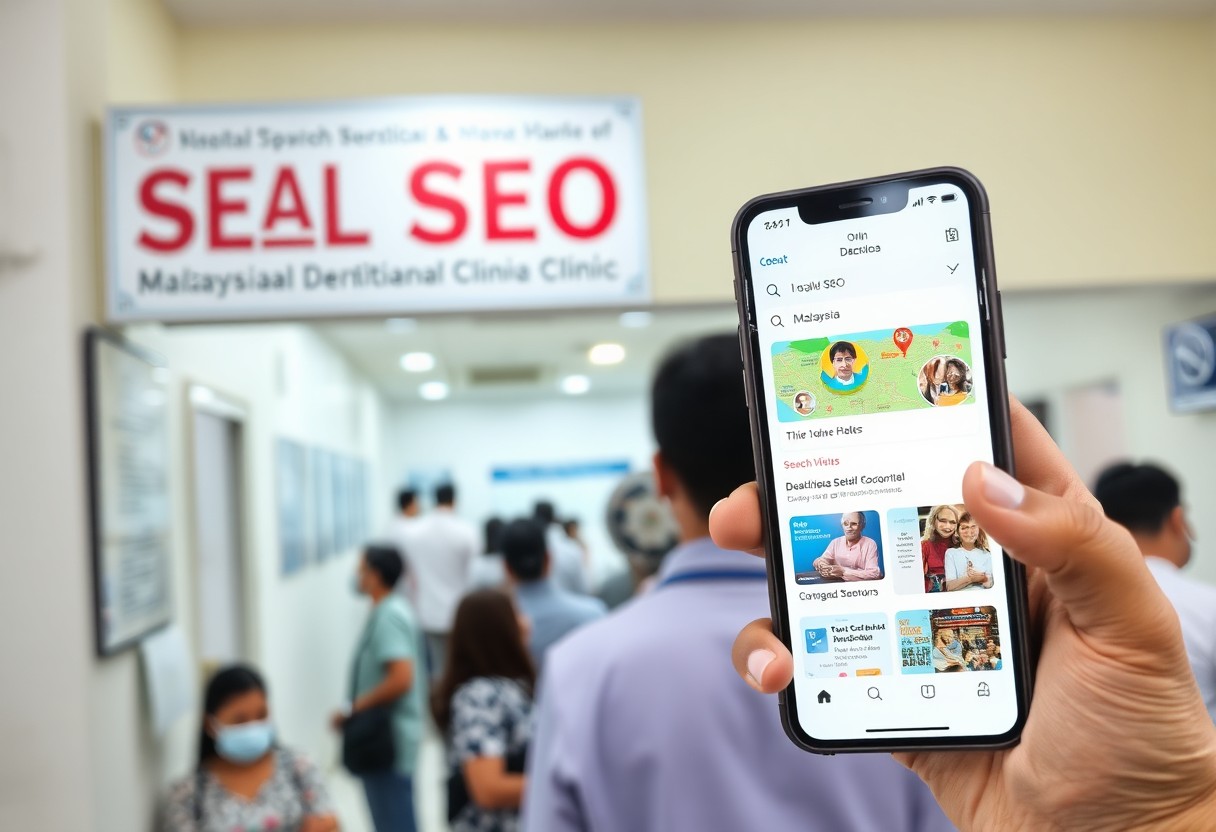

In today’s digital age, having a strong online presence is crucial for dental practices. Dental SEO (Search Engine Optimization) plays a vital role in helping your website appear higher in search results, ultimately attracting more patients to your practice. Think of SEO like a dental hygiene routine for your website. Just as regular brushing and flossing keep your teeth healthy, consistent SEO practices keep your website visible and attractive to search engines.
But why is this so important?
Well, consider this: 89% of potential patients search for new healthcare providers on Google. This statistic alone highlights the critical need for a robust online presence. If your dental practice isn’t easily found online, you’re potentially missing out on a significant number of new patients.
Local SEO is particularly crucial for dental practices. Most patients look for dental care close to home, making it essential to optimize your online presence for local searches. By improving your website for local search, you increase your chances of appearing when people search for terms like “best dentist near me” or “affordable dental implants in [your city].”
Local SEO helps you target patients in your specific area, making your marketing efforts more efficient and cost-effective. It’s not just about being found online; it’s about being found by the right people – those who are likely to become your patients.
Now that we understand the importance of dental SEO, let’s dive into some practical tips you can implement to improve your website’s visibility.
The foundation of any good SEO strategy is keyword research. Start by identifying the words and phrases people use when searching for dental services. This includes:
Use free tools like Google Keyword Planner or paid tools like SEMrush or Ahrefs to find relevant keywords with good search volume and manageable competition. Remember, it’s often easier to rank for more specific, long-tail keywords than broad, highly competitive terms.
Once you’ve identified your target keywords, it’s time to incorporate them into your website’s content. Here’s where to use them:
For example, a page about teeth whitening could have the title: “Professional Teeth Whitening in [Your City] | [Your Dental Practice Name]”
Make sure to use your keywords naturally throughout your content. Keyword stuffing (overusing keywords in an unnatural way) can actually hurt your SEO efforts and make your content less appealing to readers.
Content is king in the world of SEO. Create content that answers common dental questions and addresses your patients’ concerns. This could include:
When creating content, focus on providing value to your readers. The more helpful and informative your content is, the more likely it is to be shared and linked to by others, which can further boost your SEO.
Remember to use your keywords naturally in your writing. The goal is to create content that’s primarily for your readers, not search engines. Google’s algorithms are sophisticated enough to understand context, so focus on writing clearly and informatively.
Claiming and optimizing your Google My Business listing is crucial for local SEO. This free tool helps you manage how your dental practice appears in Google Search and Maps. Make sure to include:
Keeping your Google My Business listing up-to-date and active can significantly improve your visibility in local search results and the Google Map Pack.
Citations are mentions of your business name, address, and phone number on other websites. They help validate your business information for search engines. Focus on getting listed in:
In addition to citations, try to earn backlinks (links from other websites to yours) from reputable local sources. This could include:
Quality backlinks act as “votes of confidence” for your website, potentially improving your search rankings.
Online reviews play a crucial role in both SEO and patient decision-making. Positive reviews can boost your local search rankings and attract new patients. Implement a strategy to encourage satisfied patients to leave reviews on platforms like Google, Yelp, and Facebook.
Always respond promptly and professionally to all reviews, both positive and negative. This shows that you value patient feedback and are actively engaged with your patients.
Schema markup is a type of structured data that helps search engines understand the content on your website better. For dental practices, you can use schema markup to provide information such as:
While schema markup isn’t visible to website visitors, it can help search engines display rich snippets in search results, potentially improving your click-through rates.
With more and more people using smartphones to search for health information, having a mobile-friendly website is no longer optional. Google prioritizes mobile-friendly websites in its search results, especially for local searches.
Ensure your dental website is fully responsive and provides a seamless experience on all devices. This includes:
A mobile-friendly website not only helps with SEO but also provides a better user experience for potential patients.
To gauge the effectiveness of your dental SEO efforts, it’s important to monitor key metrics such as:
Use tools like Google Analytics and Google Search Console to track these metrics. These free tools provide valuable insights into your website’s performance and can help you identify areas for improvement.
Remember, SEO is an ongoing process. It’s not something you can set and forget. Regularly review your performance data and adjust your strategy as needed to stay ahead of the competition.
An interesting stat to keep in mind: 71% of patients won’t move forward with a healthcare provider if their website doesn’t provide enough information. This underscores the importance of having a well-designed, informative website as part of your overall SEO strategy.
To help you better understand dental SEO, here are answers to some common questions:
A: SEO is a long-term strategy. While you might see some improvements in a few months, it typically takes 6-12 months to see significant results. Be patient and consistent with your efforts. Remember, SEO is an ongoing process, not a one-time task.
A: While you can do some basic SEO yourself, hiring an expert can save you time and potentially get better results. They can help with more complex tasks like technical SEO, content strategy, and link building. If you’re not comfortable with digital marketing or don’t have the time to dedicate to SEO, working with a professional could be a good investment.
A: It’s a good idea to update your website regularly, at least once a month. This could include adding new blog posts, updating service pages, or refreshing your homepage content. Regular updates signal to search engines that your site is active and can help improve your rankings. Plus, fresh content gives your patients a reason to keep coming back to your site.
A: While social media signals aren’t a direct ranking factor, an active social media presence can indirectly benefit your SEO. Social media can help increase brand awareness, drive traffic to your website, and provide opportunities for content sharing. All of these can contribute to improved SEO performance over time.
A: There’s no single “most important” factor in SEO. Search engines use complex algorithms that consider numerous factors. However, some key elements include high-quality, relevant content, a good user experience, mobile-friendliness, and authoritative backlinks. Focus on creating a website that provides value to your patients, and you’ll be on the right track.
Implementing these SEO strategies can significantly improve your dental practice’s online visibility, helping you attract more patients and grow your business. Remember, SEO is not a quick fix but a long-term investment in your practice’s digital presence.
Start by focusing on creating high-quality, informative content that addresses your patients’ needs and concerns. Optimize your website for both search engines and users, ensuring it’s easy to navigate and mobile-friendly. Build your local presence through Google My Business and local citations, and don’t forget the power of patient reviews.
As you implement these strategies, keep track of your progress and be prepared to adjust your approach based on the results you see. SEO is an ever-evolving field, so staying informed about the latest trends and best practices is crucial.
Remember, the goal of SEO isn’t just to rank higher in search results – it’s to connect with potential patients and provide them with the information they need to choose your dental practice. By focusing on creating a helpful, informative online presence, you’ll not only improve your search rankings but also build trust with potential patients before they even step foot in your office.
With patience, consistency, and a commitment to providing value to your patients both online and offline, you can use SEO to take your dental practice to new heights. So why wait? Start implementing these strategies today and watch your online presence grow!



